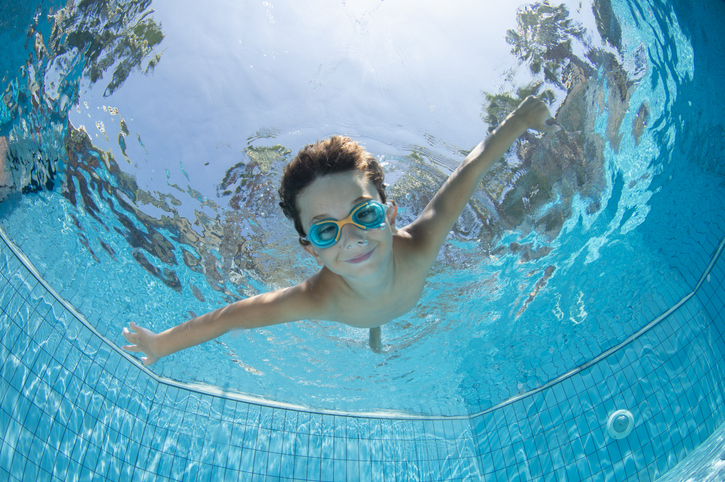
Drowning causes 3,000-4,000 deaths annually. The younger the child, the greater the risk for unintentional drowning. Water is one of the greatest joys of the summer, but it can also be one of the greatest dangers. There are two areas we need to watch out for when it comes to drowning: water in the home and swimming safety.
Water Safety Tips
Among preventable injuries, drowning is the leading cause of death for children 1 – 4 years old. Children less than a year old are more likely to drown at home in the bathroom or a bucket.
Tips to Prevent Drowning in the Home
- Watch kids when they are in or around water, without being distracted.
- Keep young children within arm’s reach of an adult.
- Empty all tubs, buckets, containers, and kiddie pools immediately after use. Store them upside down so they don’t collect water.
- Close toilet lids and use toilet seat locks to prevent drowning. Keep doors to bathrooms and laundry rooms closed.
- Install fences around home pools. A pool fence should surround all sides of the pool and be at least four feet tall with self-closing and self-latching gates.
- Know what to do in an emergency. Learning CPR and basic water rescue skills may help you save a life.
Tips to Prevent Drowning in Backyard Pools
- Watch kids when they are in or around water, without being distracted.
- Keep young children within arm’s reach of an adult.
- Make sure older children swim with a partner every time.
- When children are swimming and there are several adults present, make sure kids are actively supervised at all times by choosing a Water Watcher. A Water Watcher is a responsible adult who agrees to watch the kids in the water without distractions and wears a Water Watcher card. After a certain amount of time (such as 15-minutes), the Water Watcher card is passed to another adult, who is responsible for active supervision.
- Install fences around home pools. A pool fence should surround all sides of the pool and be at least four feet tall with self-closing and self-latching gates.
- Teach children how to swim. Every child is different, so enroll children in swim lessons when they are ready. Consider their age, development, and how often they are around water.
- Make sure kids learn how to swim and develop these five water survival skills:
- step or jump into water over their heads and return to the surface;
- float or tread water for one minute;
- turn around in a full circle and find an exit
- swim 25 yards to exit the water; and
- exit the water. If in a pool, be able to exit without using the ladder.
We can’t stress enough: know what to do in an emergency. Learning CPR and basic water rescue skills may help you save a child’s life. In the event of an emergency concerning water, a person is in distress, or potential unintentional drowning, call 9-1-1 right away. Our MainStreet Family wishes your family a happy and safe summer!
